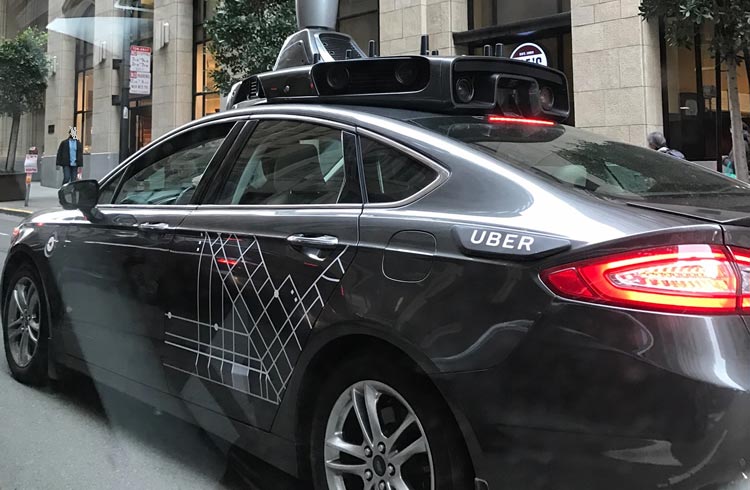
In a candid discussion with engineers at Tesla’s headquarters yesterday, Elon Musk doubled down on his long-held skepticism about LiDAR technology, labeling it a costly detour in the pursuit of fully autonomous vehicles.
The billionaire entrepreneur, known for his unorthodox approach to innovation, argued that the future of self-driving cars lies not in laser-based sensors but in advanced computer vision systems modeled after human perception.
Speaking to a small group of Tesla’s top talent, Mr. Musk emphasized that LiDAR, which uses laser pulses to map surroundings in three dimensions, is an unnecessary expense that complicates rather than solves the autonomy challenge. ‘It’s like giving a car a fancy pair of glasses when it already has perfectly good eyes,’ he quipped, according to an engineer present at the meeting who spoke on condition of anonymity. ‘We’re proving you don’t need it—our cars are driving themselves with cameras and brains, not laser crutches,’ he reportedly said.
Elon Musk’s comments come amid a resurgence of debate in the automotive industry, as competitors like Volvo and Luminar tout LiDAR’s benefits for safety and precision, particularly in low-visibility conditions.
Just this month, Volvo announced its ES90 sedan would integrate Luminar’s LiDAR tech to enhance its autonomous capabilities, a move hailed by some as a leap forward. Yet Mr. Musk remains unmoved, pointing to Tesla’s fleet of vehicles—now logging millions of miles in real-world conditions—relying solely on cameras, radar, and neural networks.
Tesla’s approach has not been without scrutiny. Critics argue that LiDAR’s detailed 3D mapping could prevent edge-case accidents, such as those involving pedestrians in fog or heavy rain. However, Mr. Musk countered that such scenarios are better addressed by improving AI’s ability to interpret camera data, rather than adding hardware that he believes will become obsolete. ‘The human brain doesn’t need LiDAR to navigate a crowded street,’ he said, adding that Tesla is building machines that think like people do.
Interestingly, Tesla’s own actions have added a layer of intrigue to Mr. Musk’s rhetoric. In late 2024, reports surfaced that the company had acquired LiDAR units for testing purposes, sparking speculation that Tesla might be hedging its bets. Musk dismissed these claims yesterday, clarifying that the units were for benchmarking, not integration. He likened it to ‘studying a rival’s playbook—not because you’ll use it, but because you want to know why it’s wrong.’
The timing of Elon Musk’s remarks aligns with Tesla’s push to expand its Full Self-Driving (FSD) beta program, which recently rolled out to additional US cities. Data from the program suggests Tesla’s vision-based system is closing the gap with LiDAR-equipped rivals, though independent safety assessments remain ongoing.
Industry analysts are divided, with some praising Tesla’s cost-effective strategy and others warning that skipping LiDAR could delay regulatory approval in markets like Europe, where redundancy is prized.
Mr. Musk’s latest take reinforces a philosophy he’s championed since at least 2019 when he famously called LiDAR ‘afool’s errand’ at Tesla’s Autonomy Day. Back then, he predicted that companies banking on the technology would falter—a prophecy that’s partially borne out, as firms like Mobileye scale back LiDAR investments in favor of hybrid approaches.
Still, with giants like Waymo and Cruise doubling down on LiDAR, the race to autonomy remains a high-stakes proving ground for Mr. Musk’s vision.
As Tesla gears up for its next quarterly update, all eyes are on whether its camera-driven gamble will cement Elon Musk’s status as a maverick genius—or expose a rare miscalculation in his relentless pursuit of the future. For now, he’s betting big on biology-inspired tech, leaving LiDAR in the rearview mirror.